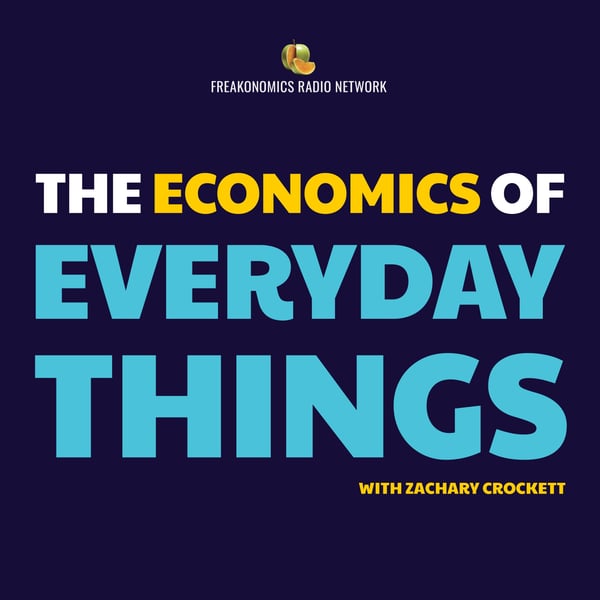58. Firefighters
The Economics of Everyday Things
Freakonomics Network
4.8 • 1.2K Ratings
🗓️ 5 August 2024
⏱️ 22 minutes
🧾️ Download transcript
Summary
Transcript
Click on a timestamp to play from that location
| 0:00.0 | Eric McIntosh still has vivid memories of a particularly nasty |
| 0:10.0 | fire that he fought 20 years ago. It was inside a country store in the coastal town of |
| 0:15.6 | Half Moon Bay, California. It was the hottest fire then in. My helmet melted and I remember cans just exploding, |
| 0:26.8 | the canned foods and thinking, man, |
| 0:29.3 | what is happening in here, just everywhere? |
| 0:32.4 | It sounded like a war zone in there. We actually pulled people |
| 0:37.7 | out pretty early in that fire because there was a collapse and then it became a defensive fire so at that point it's setting up |
| 0:44.8 | our big water cannons that put out a thousand gallons a minute. The fire raged on for |
| 0:50.3 | four hours and it took nearly a hundred firefighters and 25 trucks and |
| 0:55.2 | engines to put it out. The entire two-story structure eventually burned to the ground. |
| 1:00.2 | It left nothing but the charred remnants of canned goods and cowboy boots. |
| 1:05.1 | But thanks to Macintosh and his fellow firefighters, no one was hurt. |
| 1:09.9 | And despite the heat and the danger, McIntosh says there's something he loved about the experience. |
| 1:17.0 | The adrenaline's rolling, your training that you've worked so hard for, you were able to put into play, you know, you hate to say it, but you feel great. |
| 1:27.2 | But then, of course, the adrenaline fades and just exhaustion. |
| 1:31.6 | This is the storybook version of firefighting, brave |
| 1:35.2 | heroes battling infernos and saving lives. In reality, feats like that are |
| 1:40.7 | increasingly rare. Thanks to safety regulations and new technologies, there are fewer |
| 1:46.1 | fires than ever. But the number of salaried firefighters keeps growing. And that has a lot to do with the changing nature of the job. |
| 1:57.0 | Overall, fire departments are busier than ever, but the distribution of call types has changed. |
| 2:07.0 | So whereas fire incidents fell by more than 40% in three decades, the volume of EMS responses exploded by nearly 250%. |
| 2:16.0 | For the Freakonomics Radio Network, this is the economics of everyday things. |
... |
Please login to see the full transcript.
Disclaimer: The podcast and artwork embedded on this page are from Freakonomics Network, and are the property of its owner and not affiliated with or endorsed by Tapesearch.
Generated transcripts are the property of Freakonomics Network and are distributed freely under the Fair Use doctrine. Transcripts generated by Tapesearch are not guaranteed to be accurate.
Copyright © Tapesearch 2025.

